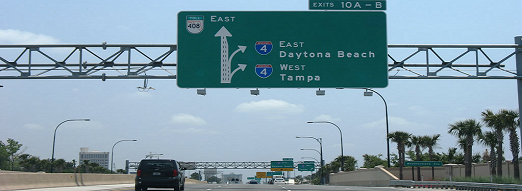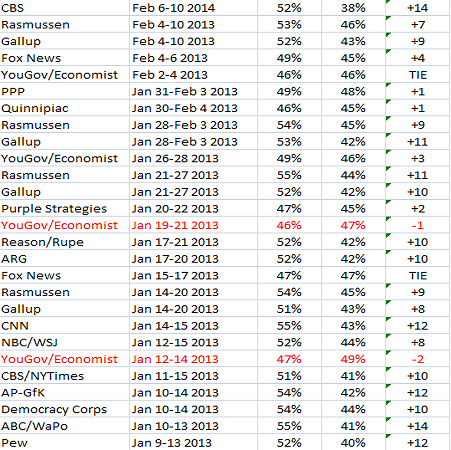 |
| Courtesy of Greg Skidmore |
But if the somewhat limited polling on the 2013 Virginia Governor's race to date is any indication, Virginia voters are either unaware that the man they call the "Cooch" is a brash ideologue headed for certain defeat, or are willing to support him regardless.
Take for example the recent Quinnipiac University poll on the 2013 Virginia Governor's race. Cuccinelli leads Terry McAuliffe 40-38%, his first lead in any Quinnipiac poll of the race to date. But the better news for Cuccinelli lies in the trend lines. In Quinnipiac's first survey of the race in November of last year, McAuliffe (D) led Cuccinelli by four points. In the follow-up poll from January, his lead had dropped to 1 point. In February, the two were TIED, and last week, Cooch grabbed his first lead. He also leads McAuliffe among Independents by 37-29%, and sports a +6% overall favorability rating with all Virginia voters (34/20%), though a large plurality don't yet have an opinion on their attorney general (46%). McAuliffe is at +4%, with a whopping 63% who are unsure.
By only 5 points, Virginians say Terry McAuliffe has the right kind of experience to be Governor, while voters say the same of Cuccinelli by 20 points. And despite all the talk of Ken being an ideologue, a slight plurality of voters say his ideology is "about right," while just 29% say he is "too conservative." For what it's worth, that's the same percentage that say McAuliffe is "too liberal."
Even more so, Virginians approve of the job their attorney general is doing by a large margin, 45/27%. Pretty impressive for a conservative firebrand in a blueish-purple state. His job approval rating has a higher net margin than that of newly elected Democratic Senator Tim Kaine (47/33%), and only slightly behind Sen. Mark Warner (D) (56/26%), and Gov. Bob McDonnell (53/26%) . That high job approval rating, if it stays there throughout the campaign, could translate into vital support this November.
The Cuccinelli camp can find further reassurance in the Quinnipiac cross-tabs on partisan identification. Survey respondents identified as 30% Democrat, 26% Republican, and 35% independent, a good deal less Republican than partisan self-identification in the 2009 Governor's race (37% Republican, 33% Democrat, 30% Independent). Had the Quinnipiac survey found party I.D. to be the same as November 2009, all other findings remaining the same, Cuccinelli would take a larger 42-38% lead.
The chart below compares actual Quinnipiac findings to reweighted partisan identifications: the 2009 Governor's race and the 2012 presidential race. This should provide us with a sort of partisan I.D. floor and ceiling, as Republicans are unlikely to see better than R+4 turnout in November, and Democrats are unlikely to see better than D+7 (party ID in VA. in the last presidential election):
Obviously, if the November 2013 Virginia electorate resembles 2009's electorate, Ken Cuccinelli will likely have a good election night. But if it looks anything like it it did in the presidential election last November, the former head of the Democratic National Committee will likely be Governor.
Which electorate are we likely to see? It's hard to say, but it's probably smarter to compare the upcoming gubernatorial electorate to the last gubernatorial race, given that Obama won't be on the ticket when voters head to the polls in 7 months.
...One final note regarding Cuccinelli's current standing in polls against McAuliffe: he's not doing that much worse than Bob McDonnell at this approximate stage in the 2009 Governor's race. And he went on to win his race by a landslide. The chart below compiles every poll taken on the 2013 Governor's race to date, courtesy of TPM poll tracker, Pollster, and Real Clear Politics:




























